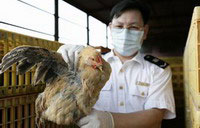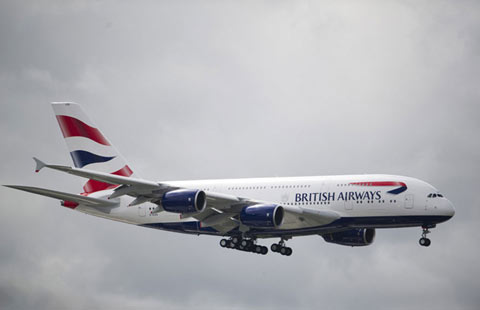Expert says H7N9 vaccine important for next wave
Updated: 2014-03-13 19:40
By Chen Hong in Shenzhen (chinadaily.com.cn)
|
||||||||
A vaccine for H7N9 bird flu that is awaiting approval for clinical trials in
Hong Kong University microbiology professor Yuen Kwok-yung told media on Tuesday that the virus, which has infected about 370 people in China since March 2013, would gradually lose its power when the temperature increases to over 20 C, expected in late May in most areas of China.
"Even if the vaccine could be put on the market as early as May, the situation is expected to turn better at that time," said Yuen, who is also an academician of the Chinese Academy of Engineering for medicine and health.
The number of those affected in almost a year is quite small when compared with China's huge population of more than 1.3 billion, he added.
"It's unnecessary to use the vaccine for poultry business practitioners or chicken farm workers because they just accounted for a small portion of the affected group, not to mention the public," Yuen said.
However, given the high death rate, which stands at about 32 percent according to his statistics, and the high possibility of the disease re-emerging this winter with a high risk of virus mutation, he said research on vaccines is very important.
Chinese scientists announced in late October that a vaccine for H7N9 bird flu virus has been independently developed.
Li Lanjuan, an academician with the Chinese Academy of Engineering and a leader of the vaccine project, said last week that the vaccine could be on the market within one to two months, Xinhua News Agency reported.
However, as long as Chinese retain their habit of buying live poultry from markets, the country would always need to be on alert for bird flu outbreaks, Yuen said.
He suggested the mainland poultry markets, especially in major cities with dense population, follow the practice of Hong Kong and kill the remaining poultry at the end of daily business and freeze them. In addition, the poultry market should be thoroughly cleaned and sterilized every day.
All six cases of H7N9 infections in Hong Kong were imported from mainland cities.

 US first lady promotes film
US first lady promotes film
 Who's got the No 1 Chinatown in the US?
Who's got the No 1 Chinatown in the US?
 Obama sweats over sweaters during shopping
Obama sweats over sweaters during shopping
 Chinese arcade games on display
Chinese arcade games on display
 Photos of stolen passport holders released
Photos of stolen passport holders released
 S Korea, Canada signs comprehensive FTA
S Korea, Canada signs comprehensive FTA
 Thai travel agents questioned over tickets for missing jet
Thai travel agents questioned over tickets for missing jet
 Crossing swords
Crossing swords
Most Viewed
Editor's Picks

|

|

|

|

|

|
Today's Top News
Report: Plane may have flown on for hours
Obama backs new Ukrainian govt
CIA accused of snooping on Senate
NYC building collapses
China, mutinational team expand search for missing jet
Crimea declares independence
Vietnam partially suspends search
Lenovo guarantees IBM strikes
US Weekly

|

|








